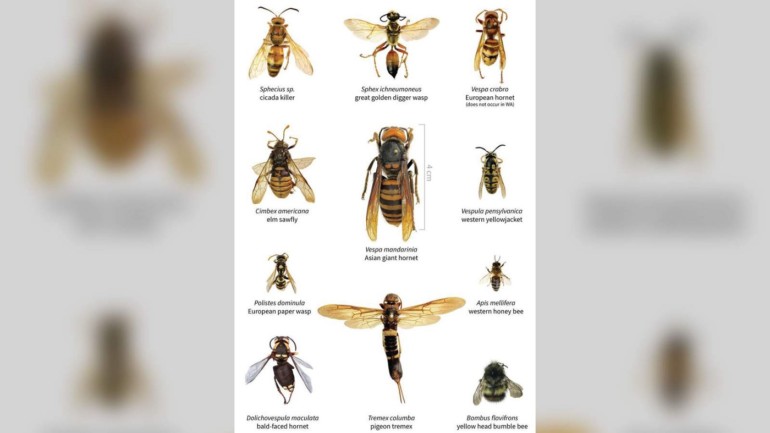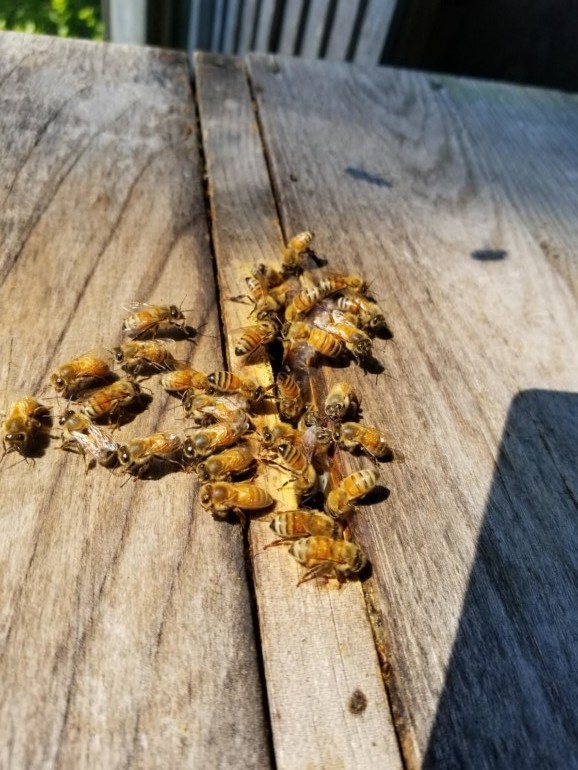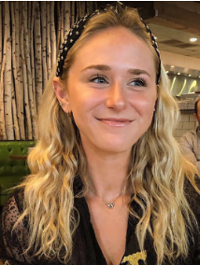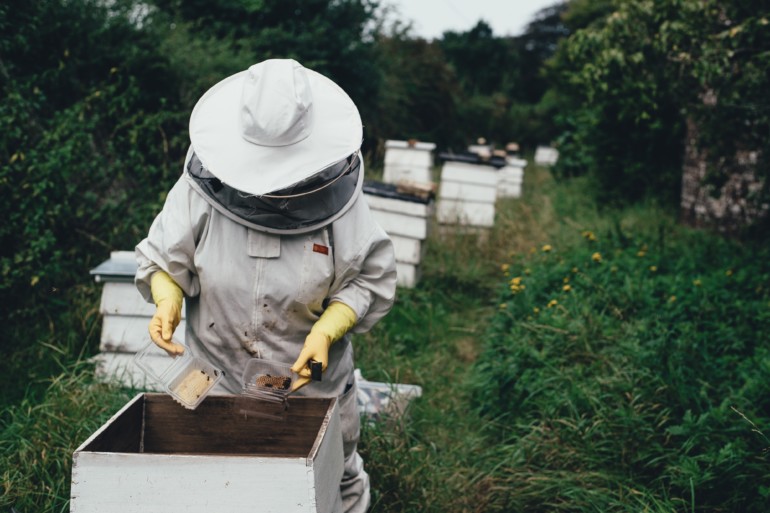There’s a lot happening in our world right now. Between COVID-19 and murder hornets, it seems Mother Nature is fighting back.
The Asian giant hornet can grow up to two inches long and wipe out an entire honeybee hive in a matter of hours. They were spotted for the first time in Washington State at the end of 2019.
But, how worried do we really need to be about these so-called murder hornets in Chicago? Some local beekeepers and scientists weigh in.
Noah Wilson-Rich, Ph.D., the Best Bees Company:
“Without beekeepers, we wouldn’t know these murder hornets were here. They were quietly identified in 2019 by beekeepers and scientists like me. Now, amidst a global pandemic, the Giant Asian Hornet has found its way into the spotlight… and the parallels between the two plagues are uncanny. Do we take this threat seriously? If we don’t, what is at stake? Our pollinators? Our food systems? If COVID-19 has taught us anything it’s that we must take early action. For COVID-19, reducing travel slows the spread, and for wasps and hornets, we need to clean those shipping containers with high pressure, hot water to kick off potentially invasive species.”
The Best Bees Company is a full-service beekeeping operation. They install and manage beehives for residences and businesses in Chicago and select markets nationwide. They also gather data about Chicago’s bees and closely observe beehive conditions throughout the season. Through DNA analysis of honey they can also learn valuable information on plant diversity, environmental conditions and pesticide exposure.
You can read more from Noah Wilson-Rich here.

Brian Thomson, Honey Lake Bee Company:
“We’re not sure that the murder hornets will be able to survive the Chicago winters…so for now, not that great of a concern!”
Brian and Karen Thomson were both Horticultural majors at Iowa State University, that turned beekeepers. It is a labor of love for their family, Karen’s sister and her husband are also beekeepers. You can visit their website to shop for everything from honey to beeswax wrap (an eco-friendly alternative to plastic wrap!). You can also find them at the Palatine Farmer’s Market, Crystal Lake Farmer’s Market or the Barrington Farmer’s Market (because of COVID-19, they are suggesting to order ahead!).
View this post on Instagram
Frank Moriarty, Honey with Style & Sweet Cyndees Bees:
“Chicagoland doesn’t need to worry about these big bugs, they have only been found in the furthest northwestern states and only a few have even been seen there.
Chicagoland does have its own large bugs that you might see…the Cicada Killer also known as the Queen Killer. They are known for eating honey bees and other bugs. They are not bad bugs, just bugs doing bug things!”
Frank and his wife, Cyndee, keep some hives on their property in Northern Illinois. Frank is the current president of the Lake County Beekeepers Association, and started “The NewBeez”- a series of programs and trainings to help new Beekeepers. Along with their Honey Bears and Jars of Honey, they also offer nine flavors of Crème Honey, which is a spreadable honey for bagels, croissants, waffles or whatever your heart desires. They recently partnered with Lambs Farm to keep producing this delicious treat! Visit their website to shop online, or find them at a local farmer’s market this summer.

More from Better:
- Women on the Rise: 13 Expert Tips from Women Leaders
- Meet Scientist Krissa Skogen: She Aims to Empower Women and Save the Planet…and it’s Working
- We Are Listening: Inspiring Posts From This Week
 Madison Muller is the Assistant Digital Editor at Better. A recent graduate of Northwestern’s Medill School of Journalism, she approaches our contemporary media environment with compassion and candor. She is interested in writing about the intersectionality of social justice issues in marginalized communities and environmentalism. Madison proudly supports Action Now, a community organization that empowers and uplifts residents on Chicago’s West Side.
Madison Muller is the Assistant Digital Editor at Better. A recent graduate of Northwestern’s Medill School of Journalism, she approaches our contemporary media environment with compassion and candor. She is interested in writing about the intersectionality of social justice issues in marginalized communities and environmentalism. Madison proudly supports Action Now, a community organization that empowers and uplifts residents on Chicago’s West Side.
She also encourages reading and supporting the TRiiBE, a digital media platform reshaping the narrative of Black Chicago, and The Marshall Project, a non-profit news organization that seeks to create and sustain a sense of national urgency about the U.S. criminal justice system.

